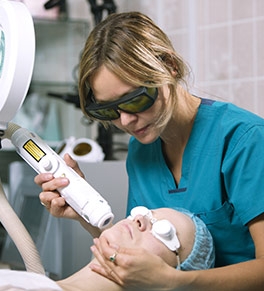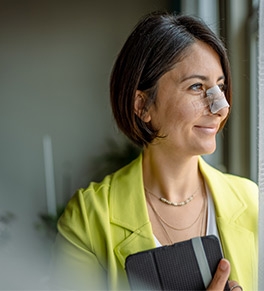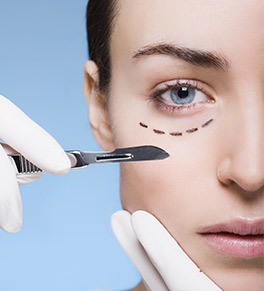
A facelift is one of the most popular types of facial plastic surgery since it can improve the effect that aging commonly has on the face and neck. This procedure can leave you with a younger, fresher appearance.
In this blog, Dr. Cecil Yeung of the Yeung Institute, a top facelift surgeon in Houston, explains what you can expect after undergoing a facelift.
What is a facelift?
Aging can affect your face and neck, causing the loss of youthful contours and making you look older than you feel. These changes can occur because of several causes, including gravity, loss of facial fat, thinning of the skin, smoking, sun exposure, and genetics.
A facelift, also known as a rhytidectomy, is a type of facial plastic surgery that repositions underlying muscle and soft tissues to restore a more youthful appearance. It’s performed on the cheek, jawline, and neck and can be combined with other procedures to also improve the forehead, eyes, or midface.
When is a facelift recommended?
A facelift can be recommended to address any of the following issues:
- Loose facial skin
- Lax facial muscles
- Reduction of facial fat
- Jowls in the lower face
- Deep creases along the nose and extending to the corners of the mouth
Generally, good candidates for a facelift are healthy nonsmokers who don’t have any medical conditions that would interfere with their ability to heal.
What is involved in a facelift?
A facelift can be performed in several different ways. Dr. Yeung has pioneered a technique known as the deep plane facelift, which has several advantages over other methods.
Most lower facelifts pull up the facial skin, which begins to sag again after a few years. Dr. Yeung’s technique repositions the muscle layer beneath the skin and drapes the skin over this muscle, resulting in a natural, long-lasting effect and seamless scars.
What can I expect after a facelift?
You’ll need someone to drive you home after your surgery, and you’ll probably want to rest for the first 24 hours.
You may start to feel some pain after your anesthesia wears off, and you’ll be given pain medicine to address this. Eating bland, soft foods that are low in sodium can help prevent nausea that can sometimes result from taking pain medication.
After your facelift, your incision will need to be kept clean and moist with half-strength hydrogen peroxide and an antibiotic ointment.
You may also experience some tingling or numbness in your face as some nerves in your facial tissue may have been cut. This is normal and may take some time to resolve.
A facelift can take some time to recover from, but the results are well worth it.
If you’re interested in finding out if a facelift might be right for you, make an appointment today with the Yeung Institute today. Dr. Yeung, an experienced facelift surgeon, will talk with you about your goals and what he can accomplish so you can make an informed decision about any procedure.









